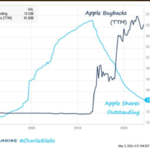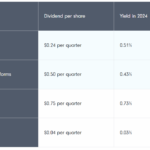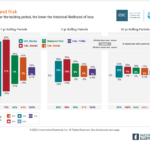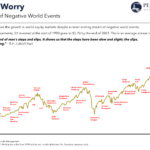Many U.S. companies hold billions of cash and cash equivalents on their balance sheets. A report in The Wall Street Journal in June of last year noted that non-financial companies hoarded an astonishing $1.84 trillion in cash and other liquid assets as of first quarter, 2010. Some of these companies have put their cash to use since then in the form of higher dividend payouts, share buybacks, acquisitions, etc. But most firms are still hoarding tons of cash and not deploying them in any meaningful way or passing them on to shareholders.
Hi-tech companies are the worst when it comes to retaining shareholder’s equity and then wasting them on some useless ideas or acquisitions. For example, Microsoft currently holds billions in cash and has a dividend yield of just 2.48%. Microsoft is not well known for coming up with innovative products. So ideally the company should be returning excess cash to shareholders as it cannot make a higher return on the shareholder’s equity by reinvesting them in operations or R&D. Instead the company is known for over-paying on acquisitions. In May this year, Microsoft paid an outrageous $8.5 billion to acquire internet telephone company Skype. Some of the other cash-rich tech firms include Cisco Systems (CSCO), Intel (INTC), Apple (APPL), Google(GOOG), Oracle (ORCL) and IBM (IBM).
Some investors believe in the theory that one should invest in cash-rich companies because excess cash acts a cushion, these companies can raise dividends, it shows that these companies are profitable, etc. However a recent study by Fortuna Advisors LLC, a value-based strategic advisory firm, has found that companies that hoard cash beyond a certain limit actually deliver lower returns to shareholders.
From Is Excess Cash a Problem? in CFO magazine:
Investors are growing restless, and in some cases downright furious, about what they see as the “inefficient balance sheets” of managements who are building large cash balances. They often demand fat share repurchases to disgorge the cash cushions that they claim erode management’s accountability to the capital markets and reduce the company’s return on capital.
Cash balances are, to be sure, clearly on the rise. We examined the largest nonfinancial U.S.-domiciled companies, eliminating those without adequate accounting and share-price data for the last 10 years. At the end of 2010 those 885 companies held almost $750 billion in cash and equivalents — nearly four times the level of 10 years earlier. This represents a doubling of the ratio of cash to assets, from 3.7% to 7.3%, over that period. Although most of the companies now hold less than 15% of their assets in cash, some hold as much as 40% or more.
Do such large cash balances have a negative impact on expected share price performance, as investors claim? To answer this, we defined a group of “cash hoarders” as companies with over 15% of their total assets in cash and cash equivalents on average over the last 10 years. In this group are some very successful companies, such as Apple, Amazon.com, and Celgene.
Given such successes, is the public outcry of investors warranted? Do companies that hold large cash balances deliver lower total shareholder return (TSR)? Our research of the period from 2001 to 2010 shows that the cash hoarders deliver median TSR about 4.6% lower per year in comparison with the companies that hold less cash. Holding cash doesn’t seem to affect TSR much until it exceeds 10% of assets, but then it seems to have a fairly strong negative effect once cash rises above 15% of assets. (emphasis added)
Hat Tip: The Globe and Mail
So companies that are unable to deliver a higher rate of return by deploying excess cash must return them to shareholders and not squander them.
Disclosure: No positions



